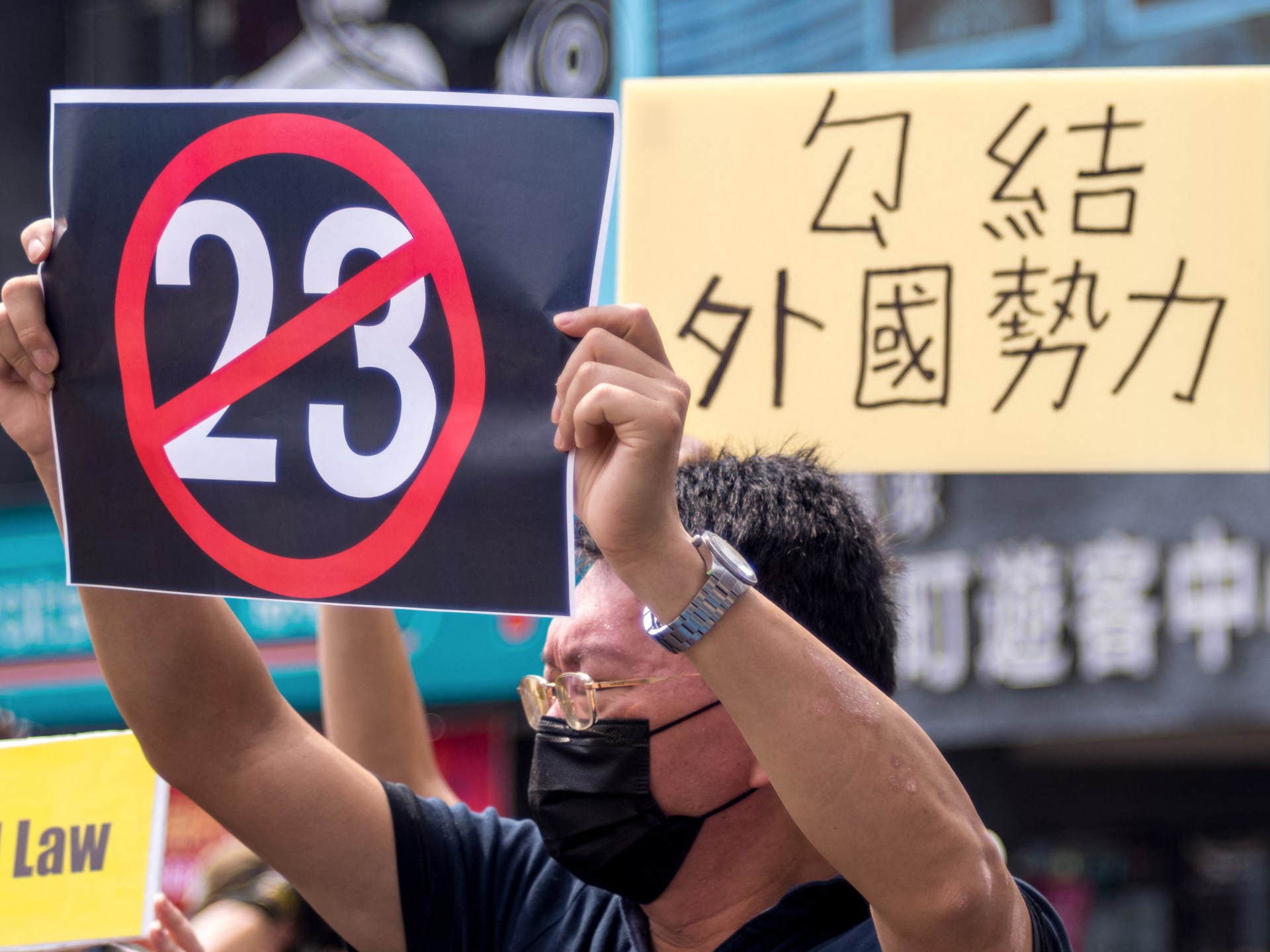
A new national security law has come into force in Hong Kong, despite growing international criticism that it could erode freedoms in the Chinese-ruled city and damage its reputation as an international financial center.
The Law, also known as Article 23took effect at midnight on Saturday, days after Hong Kong’s pro-Beijing lawmakers unanimously passed it, fast-tracking legislation to address what authorities described as national security gaps.
Hong Kong Prime Minister John Lee said the law “accomplished a historic mission and lived up to the trust placed in us by the central government.” [Chinese] Authorities”.
He has often cited Hong Kong’s “constitutional responsibility” to create the new legislation under the Basic Law, the city’s mini-constitution since its handover from the United Kingdom to China in 1997.
Lee also said the law was necessary to “prevent black-clad violence,” referring to the massive and sometimes violent pro-democracy protests in Hong Kong in 2019 that saw hundreds of thousands take to the streets demanding greater autonomy from the demanded Beijing’s hand.
A previous attempt to pass Article 23 was abandoned in 2003 after 500,000 people protested. This time, public criticism remained muted given the security measures.
What does the new law contain?
Hong Kong, a former British colony, returned to Chinese rule in 1997 with the guarantee that its high degree of autonomy and freedoms would be protected under the “one country, two systems” formula.
Currently, the new Article 23 law has expanded the British colonial-era crime of “sedition” to include incitement to hatred against the leadership of the Chinese Communist Party and carries an increased penalty of up to 10 years in prison.
Under the security law, life imprisonment can be imposed for sabotage endangering national security, treason and insurrection. 20 years for espionage and sabotage; and 14 years for third-party interference.
City leader Lee also now has the power to use supplementary laws to create new offenses with prison sentences of up to seven years, while the security minister can impose punitive measures against activists abroad, including canceling their passports.
In addition, police powers were expanded to allow people to be detained without charge for up to 16 days – an increase from the current 48 hours – and to ban a suspect from meeting with lawyers and communicating with others.
International condemnation
The United States, the European Union, Japan and the United Kingdom were among the law’s harshest critics. British Foreign Secretary David Cameron said it would “further damage the rights and freedoms” of people in the city.
US Secretary of State Antony Blinken expressed “deep concern” on Friday that the law could be abused to undermine rights and curb dissent, adding that it could damage Hong Kong’s reputation as an international financial center.
Meanwhile, Australia, the United Kingdom and Taiwan have updated their travel warnings for Hong Kong, urging citizens to exercise caution.
“One could inadvertently break the law and be detained without charge and denied access to a lawyer,” the Australian government said.
In a joint statement by the overseas-based Hong Kong Democracy Council, 145 community and advocacy groups also condemned the law and called for sanctions against Hong Kong and Chinese officials involved in its passage, as well as a review of the status of Hong Kong’s economic and trade offices worldwide.
“It is time for the United States to stand up for political prisoners and freedom in Hong Kong. “Every time we let authoritarians get away with atrocities, we risk other bad actors doing the same,” Hong Kong activist Frances Hui said in Washington during a press conference with the US Congressional-Executive Commission on China (CECC). advises Congress.
Protests also broke out in Taipei’s trendy Ximending shopping district, where more than a dozen activists from Hong Kong, Taiwan and Tibet gathered to protest against the law and voice their criticism. Further protests are planned in Australia, Great Britain, Canada, Japan and the USA.
But the authorities in Hong Kong have “strongly condemned such political maneuvers with distorted, fact-twisting, fear-mongering and panic-mongering remarks.”
What is China’s attitude?
China defends the crackdown by security forces in Hong Kong as essential to restoring order after months of sometimes violent anti-government and pro-democracy protests in 2019.
About 291 people have been arrested for national security violations, with 174 people and five companies charged so far.
Chinese authorities insist that all are equal before the security laws that have restored stability, but while individual rights are respected, freedoms are not absolute.






Recent Comments